


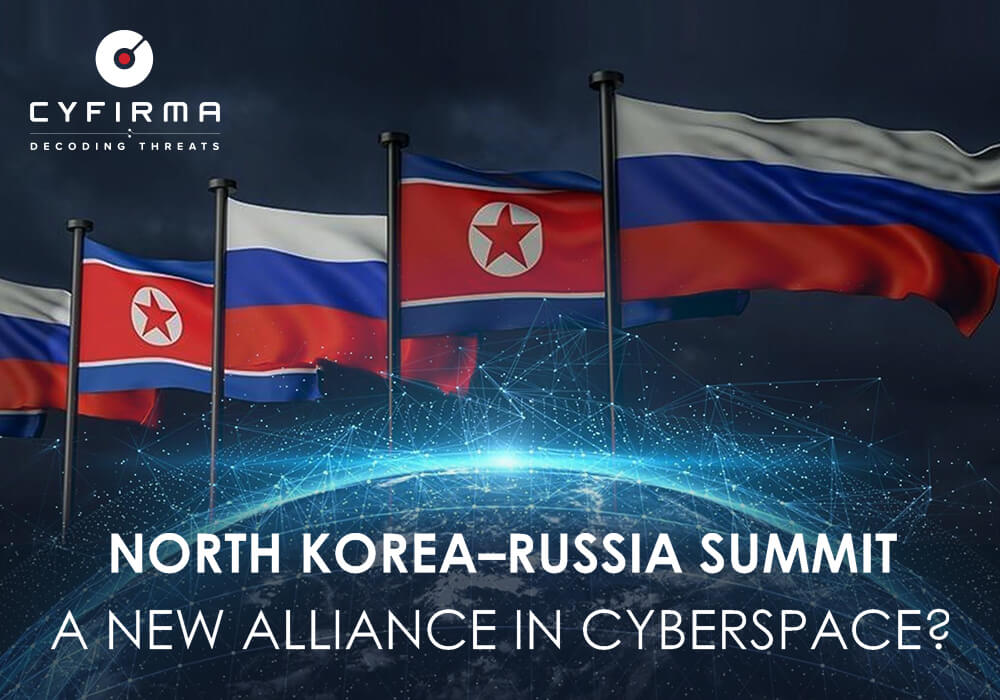
While their relationship is largely transactional, Russia and North Korea have much to gain from each other at this particular geopolitical moment. The Putin-Kim summit indicated that Russia is prioritizing military cooperation with North Korea, regardless of sanctions or international community responses. This is a notable shift and one that is likely to accelerate Pyongyang’s advancement in key industries such as rockets, cyber tools, or military satellites, as well as in broader political and military competition against the West.
On the 13th September 2023 North Korean leader Kim Jong Un took a rare trip beyond his country’s borders –his first since 2020 – via a heavily armored train to Russia, where he met with Russian president Vladimir Putin. The visit stoked fears that there could be increased weapons and technology transfers between the two nations, hostile to the West (and its partners in Asia) with North Korea providing Russia with munitions for its war in Ukraine in exchange for sensitive nuclear, missile and cyber knowhow. Around this time, North Korea unveiled a nuclear-capable submarine, with the additional stated intention of converting all existing medium-sized diesel submarines with nuclear attack capability to complete their nuclear triad of land, air, and marine missile launchers, none of which would be possible without external expertise.
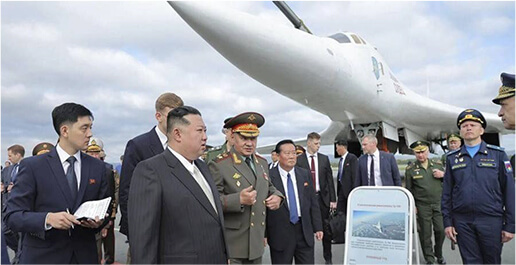
The week of his visit also witnessed evidence of increased digital threats from North Korea, with threat actors from Pyongyang seeming particularly interested in maritime technology research information theft. After years of mistrust, both Russia and North Korea seem to have something that the other wants and needs.
Until the Russian invasion of Ukraine, the relationship between North Korea and Russia could be described as utilitarian at best, despite Soviet involvement in the conception of the North Korean state.
In 2015, Vladimir Putin invited Kim Jong-un to Russia to celebrate the 70th anniversary of the end of World War II, but Kim declined in order to focus on consolidation of power at home. Russia also supported UN Security Council sanctions against North Korea until 2017 and failed to make progress in identifying mutually beneficial areas of economic cooperation. Kim and Putin later met at a 2019 summit, but Putin publicly reflected that both sides were unable to find mutually compatible areas of interests.
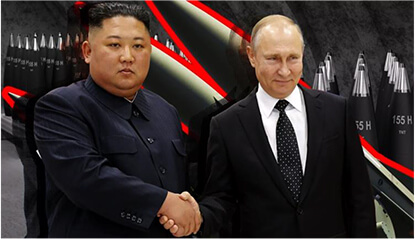
It wasn’t until the invasion of Ukraine in 2022, that the political needs and material interests of the two countries converged. North Korea recognized the independence of puppet governments in separatist provinces in Ukraine, and in exchange, Russia blocked further sanctions in the Security Council for launching long-range missiles in violation of Security Council resolutions. Putin and Kim then pledged to increase bilateral economic and security cooperation, with North Korean propaganda outlets publishing a commitment to push back against a “common enemy”.
North Korea possesses substantial weapons stockpiles and could also serve as a manufacturing hub for Soviet-caliber artillery ammunition. Russian military strategy is structurally oriented towards the decisive use of overwhelming ground fire power, and what the North Korean weapons lack in technological sophistication, they make up for in sheer volume.
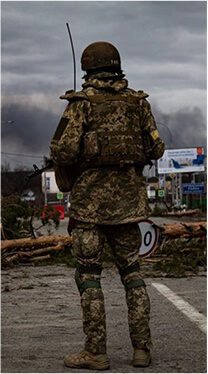
This assistance, however, will not be free: in return, North Korea will demand Russian support for the acquisition and development of advanced missile, satellite, and submarine technology, as well as food aid, cheap oil, and know-how transfers, including in the cyber domain. Only time will tell if both parties are satisfied with their investments.
Resurrected military relations between North Korea and Russia will witness two-way shipments of military equipment and dual-use goods, including technology long desired by the North Korean military but denied for decades by China and Russia, due to international sanctions (including aircraft modernization, missile and submarine technology, and other advanced weapons systems). Overtures have also been made to China to join the Russian-North Korean coalition, with a summit between delegates taking place on the 70th anniversary of the Korean Armistice.
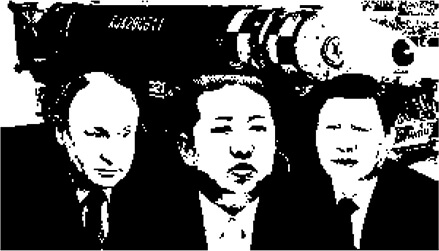
This new relationship between China, North Korea and Russia is still a far cry from the alliance shared by the United States, Japan, and South Korea, which is planned to expand significantly in the face of regional threats (more on this topic in this Cyfirma research article). The emergence of these opposing coalitions exacerbates tensions in Northeast Asia: closer relations between North Korea and Russia, part mitigation of North Korea’s political isolation, strengthening of Kim Jong-un’s political legitimacy, and giving North Korea the courage to continue developing missiles and satellites or launching cyber-attacks with impunity.
Prior to 2017, virtually all North Korean internet traffic passed through China and specifically through a single meta-network based in Shenyang. (Shenyang is the largest Chinese city nearest to the North Korean border, and the network is located there due to insufficient local infrastructure). Since 2017, however, North Korea has been linked to Russia, presumably via cable running through the ‘Friendship Bridge’ that connects Khasan in Russia with Tumangang in North Korea. North Korean cyber-attacks are becoming widespread and increasingly sophisticated, which indicates Chinese and Russian technical facilitation, arguably a first for Russian state hackers.
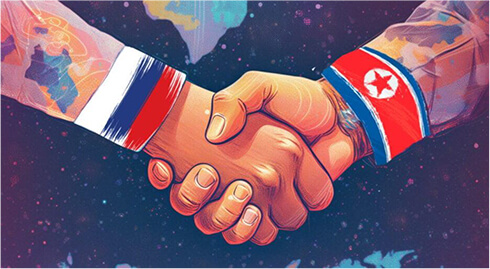
The majority of North Korea’s offensive cyber operations are already directed against countries with cool or hostile relations with Russia. That said, the Russian government and defense industries remain targets for North Korean APTs as well: this spring alone, North Korean threat actor Ruby Sleet compromised an aerospace research institute in Russia, while another APT compromised a device belonging to a university in Russia. Another group sent phishing emails to Russian diplomatic entities, which was then followed by the targeting of a Russian defense base by North Korean hacking groups; ‘ScarCruft’ and ‘Lazarus’.
That said, the Russian regime is under such pressure that it is likely to overlook such intrusions in pursuit of the bigger picture. Russia may even use North Korean APTs as proxies in the future, as the digital flank of the Russia–Ukraine conflict wears on.
Both North Korea and Russia are cyber-capable nations with a very high degree of willingness to use cyber as a tool of statecraft. Hackers from both countries can disrupt or break key infrastructure and steal sensitive information, and Russia’s efforts in online fraud, disinformation, and disruption to core infrastructure have become a significant threat to Western societies. North Korean cyber operations are also becoming increasingly sophisticated, with state hackers collecting intelligence and generating revenue for the state. Cyber espionage efforts are focused on the state’s perceived adversaries (mainly South Korea, the United States, and Japan) and collect military intelligence as well as other technologies that could further the aims of the North Korean military. Russia and China are increasingly being used as technology sources, and stolen cryptocurrency is being channeled to fund its missile and nuclear programs. Indeed, the efforts of North Korean threat actors are becoming increasingly sophisticated.
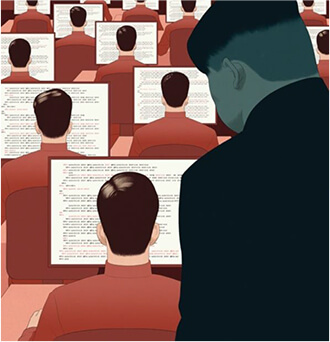
The exchange of artillery shells is the most palpable result of Russia–North Korean cooperation so far, but it is only one facet of this deal, which paves the way for more dangerous technology and know-how transfers, connecting war in Europe more directly with tensions in Asia. Both Russia and DPRK have been showing contempt for international rules in recent years and have actively and unscrupulously used cyber to promote their agenda. North Korea remains focused on targets relating to its political, economic, and defense interests in the region, but the heightened security cooperation between the two regimes should portend increased risk in cyberspace, especially for the USA, South Korea, Japan and European NATO countries.